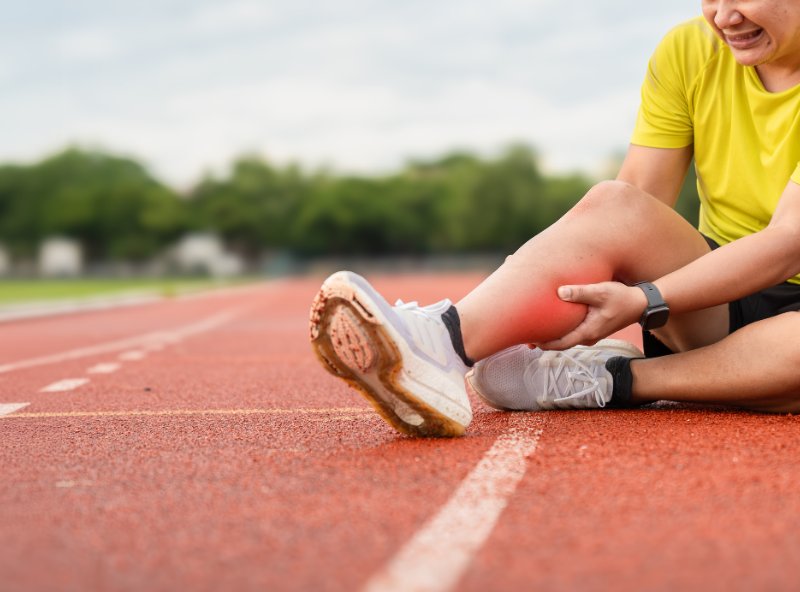Every athlete—whether you’re a weekend warrior, school player, or adult who stays active—knows that sports injuries happen. With the right plan, management, and expert help, most people return stronger than before. In this guide, we break down how to deal with sprains, strains, tendon pain, and more. You’ll learn what to do right away, how physiotherapy and rehab help, and how to reduce the risk of replaying injuries. This info applies to anyone—but if you live in Surrey, South Surrey or Langley, we explain how you can get local care at the end, including why Renew Clinics is a trusted choice in Surrey.
What counts as a sports injury?
A sports injury describes any damage caused by sports or exercise. Some occur suddenly—acute injuries such as ankle sprains, knee ACL tears, or shoulder dislocations. Others come from overuse—like tendonitis, tennis elbow, or shin splints that build up over time. Common examples include:
- Ankle sprains: ligament stretches or tears, often from rolling the ankle.
- Strains: muscle or tendon overstretch—hamstring pulls, groin injuries.
- Tendinopathy: painful tendon wear in spots like the Achilles or patellar tendon.
- ACL (anterior cruciate ligament) tear: often from cutting or pivoting, requiring surgery and long rehab.
Trying to power through pain is risky. If pain rises over 4 out of 10 or swelling starts, stop and get help—pushing too hard can delay healing or make things worse.
First steps: what to do after injury
Quick action matters. Follow these steps within the first 48 hours:
- Protect the injured area (brace, sling, avoid movement that causes pain).
- Elevate it slightly to reduce swelling.
- Avoid anti-inflammatories such as NSAIDs unless prescribed—they may slow key stages of healing.
- Compress the area gently with a bandage.
- Educate yourself on what’s safe and what’s not.
This framework is the updated PEACE & LOVE model—a modern alternative to RICE (Rest, Ice, Compress, Elevate). Early movement and slowly building activity actually help tissues heal stronger and prevent stiffness.
Why physical therapy matters
Rehab is more than guided exercise—it’s a step-by-step process to restore your strength, flexibility, balance, and confidence. Good physiotherapists assess your injury, then design a plan tailored to your injury type and your goals, from return-to-work to return-to-sport.
Rehabilitation programs today rely on active rehab, where patients play a central role. Examples:
- Stretching and strengthening specific muscles
- Balance training and proprioception drills
- Functional moves that mimic your sport
- Gait retraining or posture work
This approach shortens time off and lowers risk of repeat injury.
The path to full recovery: rehab phases
Rehab usually moves through phases:
- Acute (first couple days): PEACE steps—gentle motion, avoid harmful meds.
- Sub-acute (first 2 weeks): slowly add weight-bearing, range-of-motion, and pain-free movement.
- Strength gain (weeks 2–6): focus on load-bearing exercises and muscle building.
- Return to function (weeks 6+): sport-specific moves, speed work, agility drills.
- Return-to-sport with mental cues: if you feel confident, have no pain, and pass strength tests, you may resume activity under supervision.
This timeline can stretch—for example, ACL rehab may take 9 months or longer, with higher re-tear risk if returning earlier.
Preventing future injury: don’t skip these
Sports injuries repeat when prevention fails. Protect yourself with:
- Sport-specific warm‑up routines (e.g. dynamic stretches, running drills), proven to reduce injury risk in youth athletes.
- Strength and flexibility training for weak or tight areas that often re-injure.
- Progressive training load, avoiding sudden jumps in duration or intensity.
- Cross-training—mixing movement types (e.g. cycling, swimming, resistance work) to reduce stress on same tissues.
Regular check-ins with a physio help catch minor issues before they become full injuries.
Whole-person care speeds up healing
Recovery involves more than body repair. Experts now suggest:
- Optimism improves motivation and healing outcomes. A positive mind supports rehab progress.
- Vascularization—performing low-load cardio (like walking or light cycling) early on to improve blood flow.
- Pain education—knowing how to manage discomfort and differentiate between good, “constructive” pain and harmful signals.
- Nutrition—getting enough protein, fish oil, vitamin D, calcium, especially if recovering from bone or tendon issues. These help repair tissues without costing more swelling or damage.
When to step up care
Here’s when professional help matters:
- If pain or swelling persists after 48–72 hours
- If range-of-motion remains limited or strength is poor
- If you rely on painkillers or anti-inflammatories to stay active
- If you suffer recurring injuries at the same body part
Seeking an expert early can reduce long‑term problems.
Why local care matters—for you in Surrey, South Surrey, or Langley
Local access to qualified care can make all the difference. Working with a trusted physiotherapist near you means:
- Faster evaluation and early PEACE‑phase treatment
- Consistent in‑clinic rehab combined with guided home exercises
- Coordination with specialists, if needed
- Support for people in South Surrey, Langley, Cloverdale, Willoughby, Clayton and the surrounding Surrey communities
- Knowledge of local trends: weekend league soccer injuries, high school field hockey sprains, or runners training on local trails
Tips to Help Yourself Alongside Professional Care
- Stick with your home exercise plan each day—even if only 10 minutes
- Track progress: record pain levels, swelling, flexible range, or strength
- Do cross‑training, to stay active without overloading the injured area
- Use support gear (braces, tape, orthotics) as advised by your therapist
- Don’t rush: returning too fast often leads to setbacks
Ready to take action?
If you’re dealing with a sports injury (pain, swelling, stiffness, or reduced strength), or you want to lower your risk next season, start with an expert evaluation. A physiotherapist can spot hidden issues, assess your movement and guide you on the right path for recovery.
About Renew Clinics
Renew Clinics offers expert sports injury management through physiotherapy, rehab programs, and prevention plans. We serve patients in Surrey, including South Surrey and Langley, and focus on personal care and safe return to activity.

